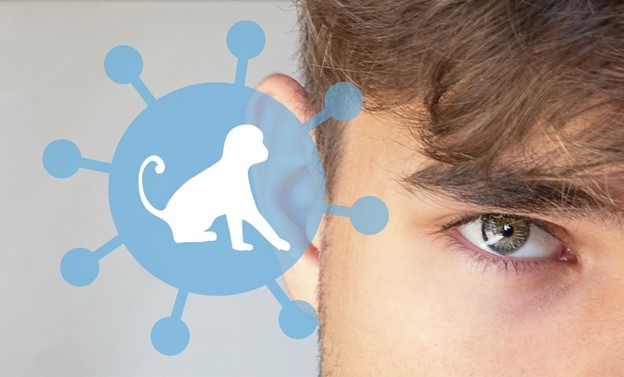With the recent national concerns with monkeypox, worries about who, when, and how you can contract it have surged. Recent cases have shown the majority of the cases to be in men who have had sexual contact with other men. However, as health experts have highlighted, anyone can contract monkeypox. A recent report of 11,000 cases drove officials to report this as a public health emergency. FDA Commissioner Robert M. Califf stated in a recent interview that, “in recent weeks the monkeypox virus has continued to spread at a rate that has made it clear our current vaccine supply will not meet the current demand.”
So posing the question, what exactly is monkeypox? Monkeypox is a viral disease that is caused by the monkeypox virus. It originated from Africa but has only recently posed a national concern among humans. According to the CDC, some symptoms include a rash present on or near the genital or anal area as well as on other areas like the hands, feet, chest, face, or mouth. There has been a vaccine made, but the supply is very limited. Because of this and the distress, the situation is causing, some people have found a need for a scapegoat which ultimately gives rise to the stigmatization of the gay community.
In an interview by the Washington Post, Aaron Backman, a member of the LGBTQ community with monkeypox, claimed he had received information from his doctor’s office and local health officials about whether he would qualify for treatment, which he, in the end, he never received. He stated that “I feel like public health doesn’t care if gay men die or not.” The fear others have is that this shortened, but the sexually targeted message can lead to discrimination among a community who has already struggled to progress with the rights they have now not only economically or socially, but in healthcare as well. Ella Washington, a professor at Georgetown University, emphasizes the fact that the information shared with others highly depends on how much people limit generalization which can greatly raise the potential for awareness rather than stigma. With all of the uncertainties surrounding the disease, defining and singling out a group based on the majority will fuel the start again of inequity among these communities. As stated by many health as well as LGBTQ advocates, the best thing for everyone is to be aware rather than selective so that a proper understanding of the situation is addressed.
References
Centers for Disease Control and Prevention. (2022, July 22). About Monkeypox. Centers for Disease Control and Prevention. Retrieved August 17, 2022, from https://www.cdc.gov/poxvirus/monkeypox/about.html
Gonzales, M. (2022, August 11). Monkeypox and LGBTQ workers: How to avoid stigmatizing gay and bisexual employees. SHRM. Retrieved August 17, 2022, from https://www.shrm.org/resourcesandtools/hr-topics/behavioral-competencies/global-and-cultural-effectiveness/pages/monkeypox-and-lgbtq-workers-how-to-avoid-stigmatizing-gay-and-bisexual-employees.aspxz
Nirappil, F. (2022, August 4). Struggle to protect gay, bisexual men from Monkeypox exposes inequities. The Washington Post. Retrieved August 17, 2022, from https://www.washingtonpost.com/health/2022/07/27/monkeypox-gay-men-vaccine-treatment/
Spencekimball. (2022, July 28). WHO recommends gay and bisexual men limit sexual partners to reduce the spread of Monkeypox. CNBC. Retrieved August 17, 2022, from https://www.cnbc.com/2022/07/27/monkeypox-who-recommends-gay-bisexual-men-limit-sexual-partners-to-reduce-spread.html
Stack, L. (2022, July 28). ‘it’s scary’: Gay Men Confront a health crisis with echoes of the past. The New York Times. Retrieved August 17, 2022, from https://www.nytimes.com/2022/07/28/nyregion/gay-men-monkeypox-health-crisis.html
Treisman, R. (2022, July 26). As monkeypox spreads, know the difference between warning and stigmatizing people. NPR. Retrieved August 17, 2022, from https://www.npr.org/2022/07/26/1113713684/monkeypox-stigma-gay-community
